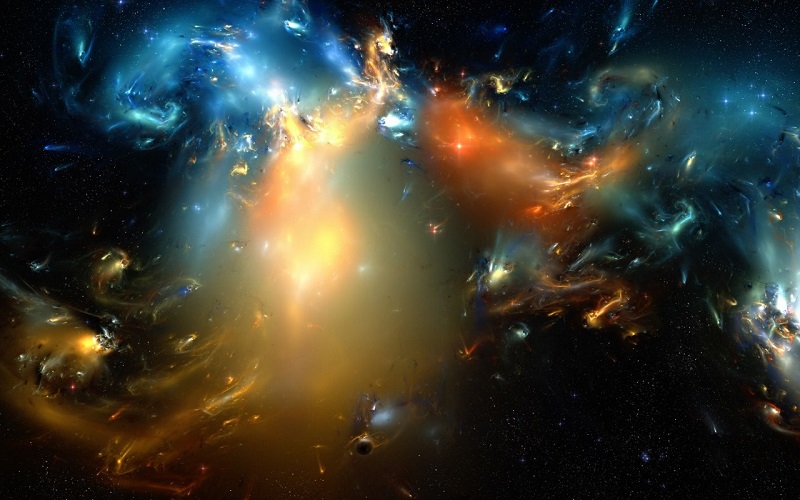Interpretation of the verses about the Istiwaa’ of Allah and the Changes in Allah’s divine Will
Question:
Assalamu’alaikum.
Honorable ustadz, please explain to me about the interpretation of the verse, which can be translated as, “Allah settles on the Throne”, and of the verse, which can be translated as, “He is with you wherever you are.”
Secondly: Could the divine will that is already destined be changed with our prayer/supplication? Thank you.
Answer:
Wa’alaikum salam.
Allah the Exalted decreed,
(الرَّحْمَنُ عَلَى الْعَرْشِ اسْتَوَى) (طـه:5)
“The Most Compassionate Lord is settled on the Throne (of the Universe).” (Qs. 20:5
Allah revealed to us in that noble verse that He – the Glorified and Exalted – settles on the Throne. In Arabic language, the word “Al Istiwa'” means becomes high and settle. And the Throne is the greatest, the highest, and the vastest among Allah’s creations
This verse points out that Allah settles on the Throne, according to what suits His Greatness and Splendor. And the way He settles unlikes the way His creations settle, since He Himself declared,
لَيْسَ كَمِثْلِهِ شَيْءٌ وَهُوَ السَّمِيعُ الْبَصِيرُ)(الشورى: من الآية11)
“Naught in the universe is like Him. He is All-Hearing, All-Seeing.” (Qs. 42: 11)
Therefore, it is compulsory for a muslim to justify and believe in it. He must not deny this attribute of istiwa’, nor that he is allowed to make resemblance of how Allah settles with the way His creations settle. Thus, our duty is to believe in it without liken it with the creations.
And Allah knows best.
***
As for Allah’s decree:
(وَهُوَ مَعَكُمْ أَيْنَ مَا كُنْتُمْ )(الحديد: من الآية4)
“He is with you wherever you are.” (Qs. 57: 4)
It means that Allah is with us, in terms of His knowledge, not He Himself. Because numerous of the valid indications have shown that Allah is above us. Therefore, if we take a closer look at the whole verse, we’ll know that it means togetherness in knowledge, not self. Allah decreed,
هُوَ الَّذِي خَلَقَ السَّمَاوَاتِ وَالْأَرْضَ فِي سِتَّةِ أَيَّامٍ ثُمَّ اسْتَوَى عَلَى الْعَرْشِ يَعْلَمُ مَا يَلِجُ فِي الْأَرْضِ وَمَا يَخْرُجُ مِنْهَا وَمَا يَنْزِلُ مِنَ السَّمَاءِ وَمَا يَعْرُجُ فِيهَا وَهُوَ مَعَكُمْ أَيْنَ مَا كُنْتُمْ وَاللَّهُ بِمَا تَعْمَلُونَ بَصِيرٌ) (الحديد:4)
“He it is Who created the heavens and the earth in six days and then established Himself on the Throne. He knows all that enters the earth and all that comes forth from it, and all that comes down from the heaven and all that goes up to it. He is with you wherever you are. Allah sees all that you do.” (Qs. 57:4)
Allah informed us that it was He Who created the heavens and the earth, then He settled on the Throne. Although Allah settles on the highest of a place, but He is The All Knowing of whatever happened in this universe, from the smallest thing to the largest. He is with us with His knowledge. Thus, the verse begun with the word “He knows” and ended with “Allah sees all that you do”, which indicates that meaning of the sentence “He is with you wherever you are” is togetherness in His knowledge, not Himself.
Hence, people who used this verse as a basis for their belief that Allah Himself is everywhere has clearly mistaken.
2. Whatever happened in this world could never happen without Allah’s will. Allah decreed,
مَا أَصَابَ مِنْ مُصِيبَةٍ فِي الْأَرْضِ وَلا فِي أَنْفُسِكُمْ إِلَّا فِي كِتَابٍ مِنْ قَبْلِ أَنْ نَبْرَأَهَا إِنَّ ذَلِكَ عَلَى اللَّهِ يَسِيرٌ) (الحديد:22)
“No misfortune ever befalls on earth, nor on yourselves but We have inscribed it in the Book before We make it manifest. Surely that is easy for Allah.” (Qs. 57:22)
Allah has written all fates of His creations 50 thousand years before the creation of the heavens and the earth. The Messenger of Allah -peace and prayer of Allah be upon him- said,
كَتَبَ اللَّهُ مَقَادِيرَ الْخَلَائِقِ قَبْلَ أَنْ يَخْلُقَ السَّمَاوَاتِ وَالْأَرْضَ بِخَمْسِينَ أَلْفَ سَنَةٍ ، قَالَ : وَعَرْشُهُ عَلَى الْمَاءِ
“Verily, Allah has written the fate of all creatures 50 thousand years before the creation of the heavens and the earth, and His throne is above the water.” (Narrated by Muslim).
Hence, it is Allah Who created us and all of our deeds, Who created all causes and its results.
As for the hadith which says:
(لَا يَرُدُّ الْقَدَرَ إِلَّا الدُّعَاءُ)
“Nothing could reject the fate but prayer.” (Narrated by Ahmad).
Then the status of this hadith is weak, and among scholars who said so was Sheikh Al Albany -may Allah have mercy on him.
Supposed that it is a valid hadith, then it doesn’t mean that we could step out of Allah’s will, or defy it, or avoid it. Because our prayer itself is a part of Allah’s will. He is Allah Who has destined us to pray, thus by that prayer He prevented some calamities to befall upon us. In another word, we reject Allah’s will with Allah’s will.
As we want to relieve pain with some medicine, and end poverty by working. It doesn’t mean that we could step out of Allah’s will, since medicine and our work are also parts of Allah’s will, and the healing and our wealth are also come from Allah’s will. Thus, we step out of one of Allah’s will, with Allah’s will, to another will of Allah.
And Allah knows best.
Answered by: Syaikh DR. Ustadz Abdullah Roy, MA (Lecturer at the Prophet’s Mosque, Medina)

